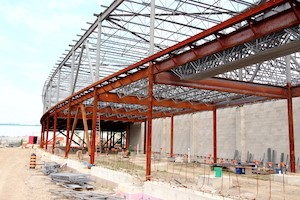WSIB transfer of costs and the impact of COVID-19
Despite best practices, everyone in the construction industry knows that accidents will occur on job sites. Sadly, it is as inevitable as paying taxes or the Maple Leafs having a great team and having no playoff success. Did you know it is possible to mitigate some of the Workplace Safety & Insurance Board (WSIB) consequences as a result of your employees getting injured or sick on a job site?
 It is possible for you as an employer to avoid losses resulting from an increase in WSIB premiums and claim costs if you can prove that another contractor is partly or wholly responsible for your employee’s accident.
It is possible for you as an employer to avoid losses resulting from an increase in WSIB premiums and claim costs if you can prove that another contractor is partly or wholly responsible for your employee’s accident.
Section 84 of the Workplace Safety and Insurance Act (WSIA) allows for a contractor to transfer costs to another contractor if certain conditions are met. It is defined in the common law as:
- failing to do something which a reasonable and prudent person would do, or
- doing something which a reasonable and prudent person would not do.
As the employer, it is important to take the necessary steps to prevent such incidents from occurring. Prevention and mitigation steps such as documenting the times safety procedures were reviewed with your employees will not only keep your employees from harm’s way but also give you a better chance of challenging any findings from the WSIB and the Ministry of Labour. This is one example of what employers can do to get ahead of the game when it comes to work-related injuries and the ensuing legal ramifications.
The employer should also be aware that the directors or foremen could be criminally charged if it is determined they failed to do their due diligence and that the accident could have been avoided or that the injured employee didn’t receive the proper instructions, training or even discipline.
Especially in the era of COVID-19, it is important for employers to be aware that their employees might be unable to work due to contracting COVID-19, for which the employer will most likely be obligated to pay the employee to stay home. An employer’s workforce could easily be decimated if the virus infiltrates its ranks as most employees will be required to get tested, to quarantine for 14 days if necessary, or be physically unable to work.
Although this is not an eventuality most employers might be thinking about now, once employees start falling prey to the virus, it might be too late for employers to try and mitigate the financial consequences that will ensue. Furthermore, there could also be some civil claims against the contractor whose negligence caused the whole project to be delayed as a result of introducing the COVID-19 virus on the job site.
That’s why carefully reading section 84 of the WSIA is crucial as it states: If the WSIB finds that an accident or disease to a Schedule 1 worker was caused by the negligence of another Schedule 1 worker or employer, the WSIB may charge all or part of the claim costs to the negligent employer's cost record.
Just imagine if the above scenario occurs and was caused by an employer that was not abiding by the necessary protocols to contain the spreading of the virus. An employer that could show that it took all the necessary precautions and would have avoided such an outcome had it not been for the negligence of another contractor on a work site could ask the WSIB to transfer all or part of the claim costs to the negligent employer's cost record.
An employer with great record keeping and work and safety policies could also prevent being on the receiving end of a transfer for cost demand. Eventually, one of your employees might get infected by COVID-19. As the employer, you will want to take measures to avoid the sick employee infecting coworkers or other workers on the job site. The steps you take now will be essential in convincing the WSIB that you did your due diligence to limit the chances of such an event from occurring.
If you are interested in learning more about the transfer of costs or the steps that can be taken by employers and employees alike to prevent accidents and the spreading of infectious diseases in the workplace or any questions relating to charges laid by the Ministry of Labour, we would be happy to answer your questions.
This article was written by Félix P. Boutin, a lawyer with MBC Law. He can be reached at 613-288-4289 and fboutin@mbclaw.ca.








